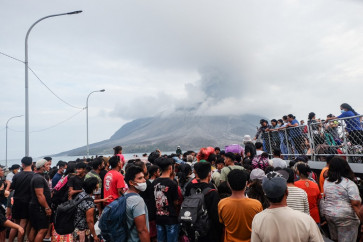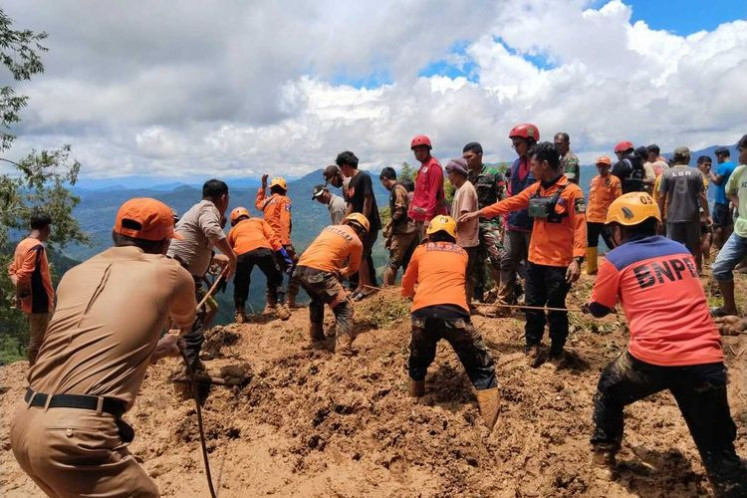For farmers, fishermen, climate change already close to home
For some, climate change is something on the horizon not requiring immediate attention, while for others it has hit close to home and adaptation is an urgent issue
Change Size

F
or some, climate change is something on the horizon not requiring immediate attention, while for others it has hit close to home and adaptation is an urgent issue.
Local communities living in coastal areas in Bengkulu, for example, once predicted weather patterns from the position of the stars, which they used to determine times for fishing and when to begin planting crops.
Before 2000, such traditional knowledge had been used for generations of fishermen and farmers, including in Sukamenanti, Waihawang, Linau and Tanjung Beringin villages in Kaur regency around 360 kilometers from the capital of Bengkulu.
But the story has changed now. And they can no longer tell how big the waves will be when they go out to sea.
“Erratic rains and waves have inflicted serious damage to local communities in Bengkulu,” activist Zenzi Aekido from Bengkulu told a dialog held to commemorate Earth Day, in Jakarta on Thursday. The Earth Day falls on April 22 every year.
Zenzi, who is also the executive director of the Bengkulu chapter of the Indonesian Forum for the Environment (Walhi), said many of the people in these communities had changed jobs as a result.
“To adapt to unexpected weather conditions, communities have three options: to migrate to new areas, to change jobs or to continue with their existing condition,” he said.
Migrating could also mean they cleared forested areas, he said.
Some farmers had also shifted to sand or coal mining.
The People’s Coalition for Equal Fisheries (Kiara) found that many fishermen in Jakarta could no longer go to sea because of the unpredictable tides.
The government said farmers and people living in coastal areas were most prone to impacts of climate change.
The Central Bureau of Statistic (BPS) says there were 46.7 million farmers in Indonesia as of 2009.
Activists commemorating Earth Day called on the government to change its priority to adaptation measures, to help local people adjust to the impacts of climate change.
The activists said the government needed to start thinking about adaptation, not just mitigation.
“Local communities have been seriously affected by unpredictable weather, but the government is still busy seeking funds to mitigate climate change,” Nadia Hadad from the Bank Information Center said.
“Now is the time for the government to take real action to help people who have [already] suffered from climate change.”
The international climate talks so far have focused more on mitigation measures with a number of wealthier nations promising to provide funds to Indonesia to mitigate climate change.
The UN Adaptation Board, for the first time, opened the application for developing countries to apply adaptation funds.
But all the money stored at the UN adaptation board was collected from 2 percent of proceeds of carbon sales by developing countries.
On several occasions the government has said there was a shortage of funding allocated to adaptation measures.









